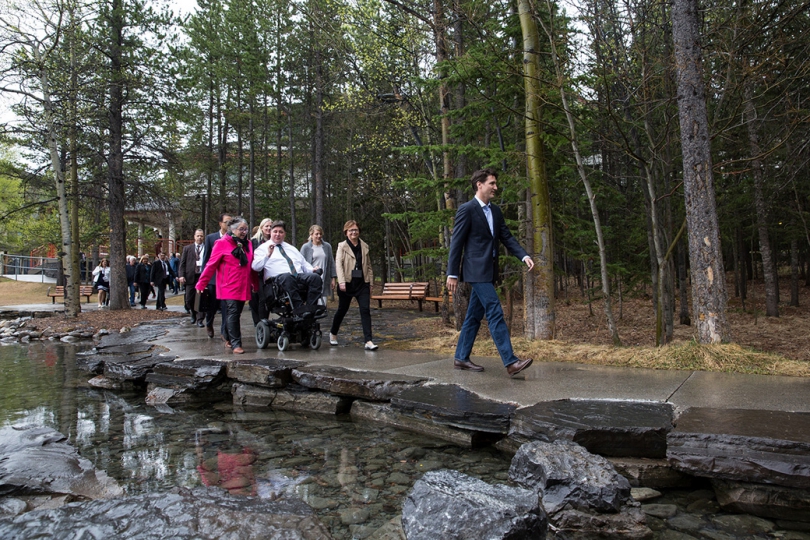For several months now, the Liberal government ministers have been using as a guide, the theories and practices embodied in deliverology, the controversial result-management philosophy developed by British political adviser Michael Barber.
So far, Barber has attended each of the prime minister’s cabinet retreats and has gone to Ottawa to create so-called “delivery units” and Matthew Mendelsohn, former deputy minister of Ontario, has been placed in charge of overseeing the government’s “delivery” efforts.
But what areas of government with the Liberals focus their deliverology efforts?
RELATED CONTENT
Can deliverology help solve education, health problems in remote areas?
Deliverology with Craig Szelestowski & Health Tips for the Long Weekend
A good indicator would be the main themes that Prime Minister Justin Trudeau frequently talk about.
“Growing the middle class,” “stronger diversity,” “improved relationships with indigenous, and outcomes for peoples,” and “international engagement that makes a difference in the world.” These according to a senior government official recently interviewed by CBC, are the Liberal’s mandate which the government will focus on producing outcomes.
Under deliverology, the process of setting priorities, measuring and reviewing outcome drives government departments to follow through and fulfill its commitments and well as producing meaningful results for the public.
Every two weeks, Trudeau will discuss one of these priorities are being met with Mendelsohn, the relevant ministers, and their senior advisers. They will also talk about how policies are being implemented and the results that are being achieved.
The idea is that if officials and their subordinates are aware that Trudeau is paying attention to a file, this will drive them to make ensure they produce meaningful results.
So far, initial meetings on three of the priorities have been held, according to the official. Further meetings are scheduled for this month.
Deliverology has its detractors and there have been some doubts about its effectivity and its focus on data and metrics, the CBC article pointed out.
For example, there have been questions like: Can metrics be linked directly to federal programs? Can the right data be tabulated? What sorts of goals are set? And how much of the data will be publicly released and touted?
These are also some of the questions that will be tackled in the upcoming Canadian Government Executive Leadership Summit 2016 on Deliverology in Practice.
The event will take place on October 5th, from 8:30 a.m. to 3:30 p.m., at the Sheraton Hotel on 150 Albert Street, in Ottawa. Leaders from both inside and outside the government will discuss how they have adapted new methods of measuring performance to ensure their organizations are on track to provide desired outcomes.
Moderated by Patrice Dutil, editor-in-chief of CGE, and professor of politics and public administration at Ryerson University, the panel includes:
- Tony Dean, professor at the School of Public Policy and Governance at the University of Toronto, and adviser in public administration and public reforms to various governments in Canada and around the world
- Craig Szelestowski, a Lean Government and transformation specialist
- Murray Kronick, national service lead for performance management for Interis BDO
- Tom Rosser, senior deputy minister for strategic policy at the Department of Fisheries and Oceans Canada
- Ian Williams, business intelligence and analytics unit manager for the Toronto Police Service
- Lou Di Gironimo, general manager of Toronto Water, for the City of Toronto
If you want to update your management skills, learn about new tools, and boost your delivery capacity, click on the link below to register for the:
CGE Leadership Summit 2016 Performing, Measuring, Reporting: Deliverology in Practice event

